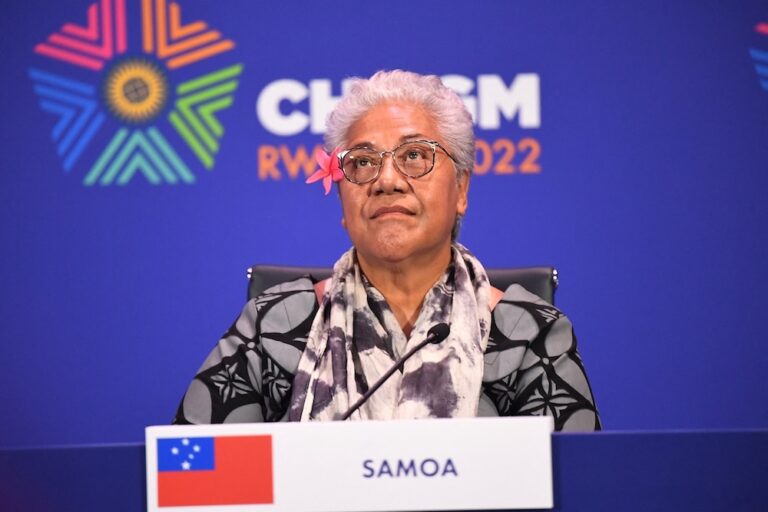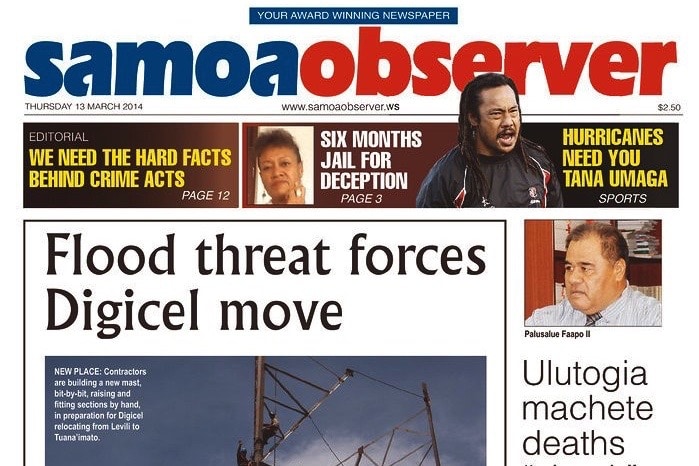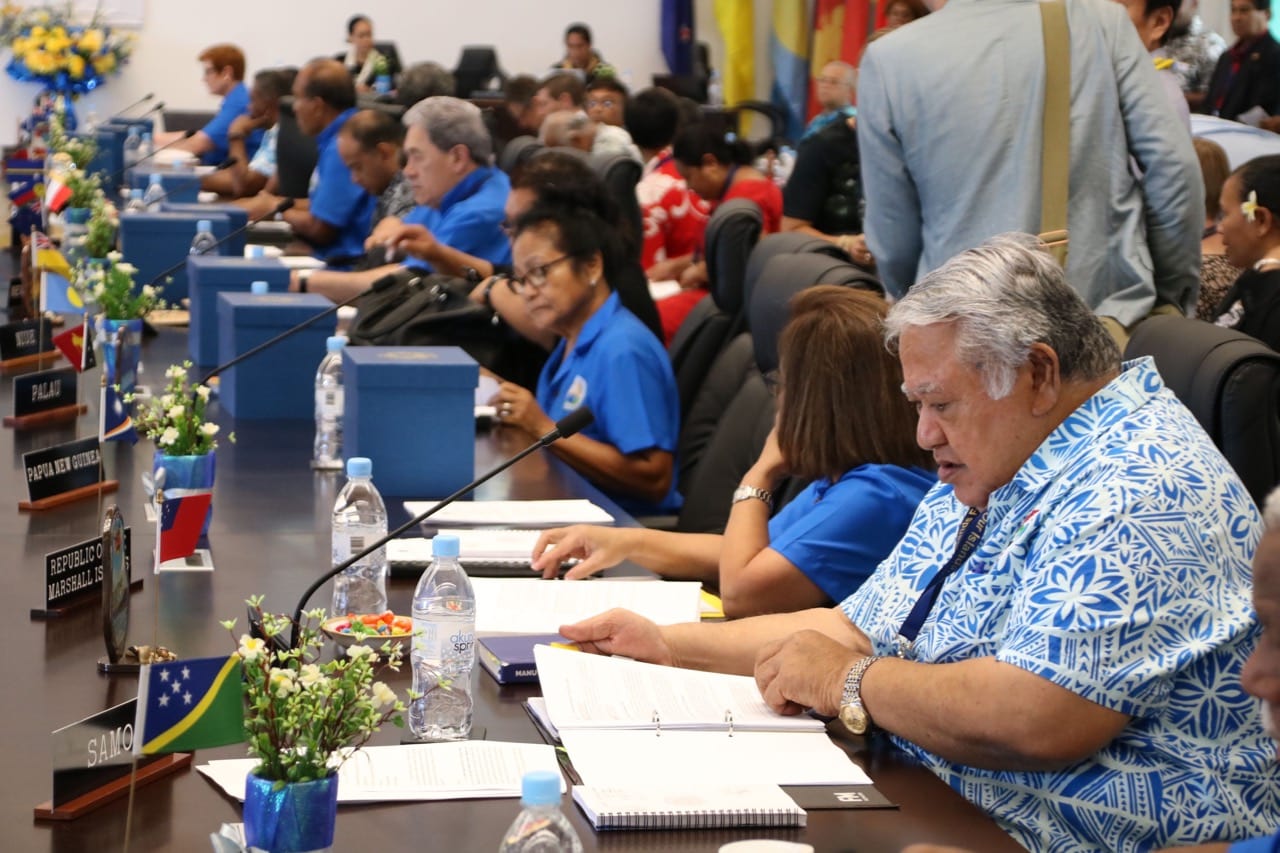(PINA/IFEX) – The leader of Samoa’s parliamentary opposition says he is beginning legal proceedings in an effort to end a government ban on him having access to the country’s national radio service. Opposition leader Tuiatua Tupua Tamasese Efi calls the ban a breach of the right to freedom of expression guaranteed in Samoa’s Constitution. Prime […]
(PINA/IFEX) – The leader of Samoa’s parliamentary opposition says
he is beginning legal proceedings in an effort to end a
government ban on him having access to the country’s national
radio service. Opposition leader Tuiatua Tupua Tamasese Efi calls
the ban a breach of the right to freedom of expression guaranteed
in Samoa’s Constitution.
Prime Minister Tofilau Eti Alesana banned Tuiatua (editor’s note:
Tuiatua is a chiefly title and should be used after the first
reference) from the national radio service, Radio 2AP. He claimed
Tuiatua used it to disturb the peace. Deputy Prime Minister
Tuilaepa Sailele Malielegaoi has also said that, when Tuiatua was
Prime Minister, Tuiatua prevented the then parliamentary
opposition from using the government radio service. The Deputy
Prime Minister added that the opposition leader can use a
privately owned FM station. However, this station does not have
the national reach of Radio 2AP. It cannot be heard in many areas
outside of the capital, Apia.
Tuiatua denies all the claims made by Prime Minister Tofilau and
Deputy Prime Minister Tuilaepa. He says that, rather than
continuing a pointless debate, he has instructed a lawyer from
New Zealand to begin legal proceedings on his behalf. He says he
has been unable to get his views on Radio 2AP for the past three
years.
Tofilau’s government currently faces public pressure over the
cost of living and allegations of corruption. On 30 October, an
estimated 5000 protesters marched through Apia calling for the
government to resign. The government, which is Samoa’s major
employer, instructed government employees not to take part.
Government-run radio stations are still a leading source of
information for many Pacific Islands people, especially those in
rural areas. PINA has frequently expressed concern at political
interference in or control of the news and public affairs
programmes of some of these broadcasters. It has stressed that
these stations are mainly publicly funded or heavily subsidised
by the taxpayers. They are supposed to be “public” broadcasters
serving all the people and not just those politicians in power,
PINA said.
Samoa was previously known as Western Samoa. Neighbouring islands
which are American territory are known as American Samoa.
Recommended Action
Send appeals to authorities:
the national radio service
human rights to freedom of information and expression and
explaining how denying access to the national radio service
contravenes these rights
broadcaster, serving all the people of Samoa and not just the
political party in power
Appeals To
The Honourable Tofilau Eti Alesana
Prime Minister of Samoa
Fax: +685 21504
(editor’s note: Tofilau is a chiefly title. After the first reference, the
prime minister should then be referred to only as Tofilau.)
Please copy appeals to the source if possible.


